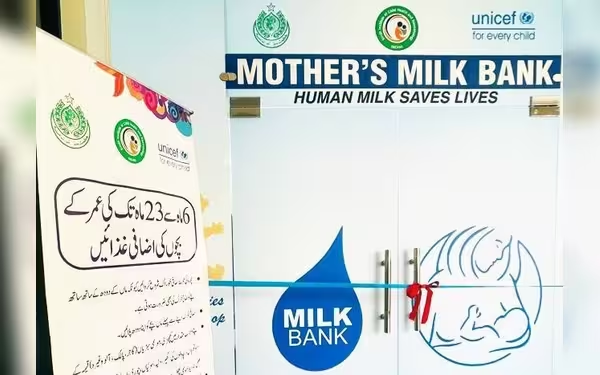Saturday, July 6, 2024 11:29 AM
Sindh Institute suspends Pakistan's first human milk bank
- SICHN halts human milk bank due to religious guidance
- Concerns over milk kinship impact Pakistan's healthcare initiatives
- Balancing modern healthcare with Islamic principles in Pakistan
 Image Credits: dailypakistanen
Image Credits: dailypakistanenThe Sindh Institute of Child Health and Neonatology suspends Pakistan's first human milk bank in response to updated religious guidance, highlighting the challenge of balancing modern healthcare with Islamic principles.
The Sindh Institute of Child Health and Neonatology (SICHN) has made the decision to suspend Pakistan's first human milk bank, a facility established in partnership with UNICEF. This move comes in response to updated religious guidance from Darul Uloom Karachi and the Council of Islamic Ideology (CII). The human milk bank, which was created to provide pasteurized donor breast milk to infants in need, has been put on hold to ensure adherence to Islamic teachings.
Originally launched with approval from Darul Uloom Karachi, the milk bank was designed to operate in accordance with Islamic jurisprudence. However, a revised fatwa from the same institution led to a reevaluation of the project. The new fatwa introduced conditions such as the requirement for Muslim children to receive milk exclusively from Muslim mothers.
While countries like Iran have successfully implemented networks of milk banks, the practice remains contentious within Islam due to the concept of milk kinship. This principle highlights the establishment of a familial bond between a woman who nurses a child not biologically her own. To prevent potential complications related to incestuous relationships between 'milk siblings,' it is essential to clearly define the foster relationship.
Despite the proven benefits of human milk banks in offering a crucial solution for women who are unable to breastfeed, the concept encounters resistance in many Muslim-majority regions due to concerns surrounding milk kinship and the anonymity of donors. The suspension of Pakistan's pioneering human milk bank underscores the ongoing efforts to harmonize healthcare initiatives with Islamic principles.
The temporary halt of Pakistan's human milk bank highlights the delicate balance between modern healthcare practices and religious considerations. While the benefits of such facilities are evident, the need to navigate complex religious beliefs underscores the importance of cultural sensitivity in healthcare delivery. As discussions continue on how to reconcile medical advancements with traditional values, it remains crucial to find solutions that respect both scientific progress and religious convictions.













